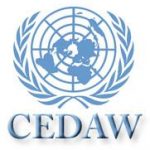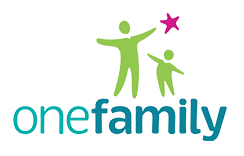Policy | United Nations Convention on the Elimination of All Forms of Discrimination Against Women (CEDAW)
 The United Nations Convention on the Elimination of All Forms of Discrimination Against Women (CEDAW) is an international human rights treaty which is often described as a bill of rights for women.
The United Nations Convention on the Elimination of All Forms of Discrimination Against Women (CEDAW) is an international human rights treaty which is often described as a bill of rights for women.
CEDAW sets out what governments must do to improve the situation of women living in the country, including addressing gender stereotyping and violence against women, promotion of gender equality in public life and protection of women’s rights to education, health and employment.
By ratifying CEDAW in 1985, Ireland agreed to take concrete steps to end gender-based discrimination and improve the situation of all women living here.
Ireland’s record under the UN Convention on the Elimination of All Forms of Discrimination Against Women (CEDAW) was examined at a hearing in Geneva on 15 February 2017. Ireland was last before the Committee in 2005. The CEDAW Committee published its Concluding Observations on Ireland on March 6th.
Key observations and recommendations by the Committee which impact on people parenting alone, sharing parenting, or separating include the establishment of a statutory maintenance authority, improved access to services for victims of domestic violence, amendment of current abortion legislation and examining the impact of austerity on disadvantaged women:
- Amend article 41.2 of the Constitution in order to remove the stereotypical language on the role of women in the home.
- Amend the Eighth Amendment which impedes the introduction of amendments to current legislation governing access to abortion.
- Repeal the Regulation of Information Act of 1995 in order to ensure free access to sexual and reproductive health information and education; and that healthcare providers, physicians and pregnancy counsellors do not operate under a constant fear that their services may be subject to criminal investigation and prosecution.
- Ensure the provision of post-abortion health-care services for women irrespective of whether they have undergone an illegal or legal abortion.
- Conduct prompt, independent and thorough investigations, in line with international human rights standards, into all allegations of abuse in Magdalene laundries, children’s institutions, Mother and Baby homes, and symphysiotomy.
- Intensify existing efforts to combat gender-based violence against women, including domestic violence, by ensuring that prosecutors and the police are properly trained to identify, investigate and prosecute cases of gender-based violence, including domestic violence, particularly targeting Traveller, Roma and migrant women and girls.
- Increase funding for civil legal aid services, review the financial eligibility criteria and end the requirement for victims of domestic violence to make financial contributions for civil legal aid.
- Intensify its efforts to guarantee equal opportunities for women in the labour market and create more opportunities for women to gain access to full-time employment.
- Address the impact of austerity measures on social benefits for women, particularly disadvantaged women.
- Undertake research on the economic consequences of divorce on both spouses, with specific attention to the differences in spouses’ earning potential and human capital, particularly focusing on whether judges take these factors into account in their decisions.
- Consider establishing a statutory maintenance authority and prescribing amounts for child maintenance in order to reduce the burden of women to litigate for child maintenance orders.
Valerie Maher, One Family Policy & Progammes Manager comments “It is clear from the above observations that while positive actions taken by Government to date have been acknowledged, there is still a significant amount of work that needs to be undertaken to improve the lives of women. Policy and legislation will need to incorporate the above recommendations going forward in order to achieve positive benefits for women in Ireland.”
The full report is available on the UN website

 What Ireland has learned about the Tuam Mother and Baby Home, and how callously and disrespectfully babies and infants were treated in life and in death, seems almost impossible to comprehend. It is difficult to think about it but we must; particularly today, on International Women’s Day. What happened at Tuam was reflective of our society, of our state and the Catholic Church. It was able to happen because of attitudes that led to pregnant, usually poor, unmarried women being held in such homes, to being treated as shameful, and to their babies being seen as an embodiment of sin.
What Ireland has learned about the Tuam Mother and Baby Home, and how callously and disrespectfully babies and infants were treated in life and in death, seems almost impossible to comprehend. It is difficult to think about it but we must; particularly today, on International Women’s Day. What happened at Tuam was reflective of our society, of our state and the Catholic Church. It was able to happen because of attitudes that led to pregnant, usually poor, unmarried women being held in such homes, to being treated as shameful, and to their babies being seen as an embodiment of sin.